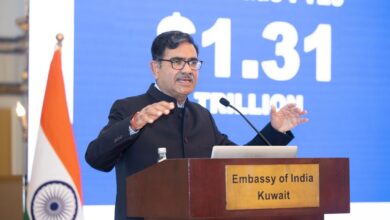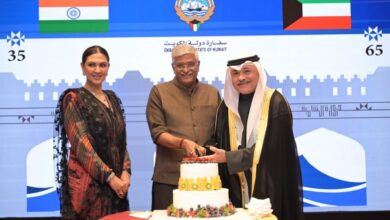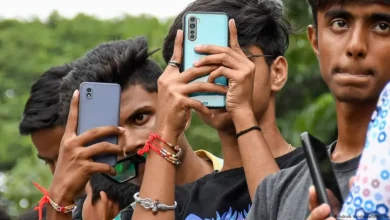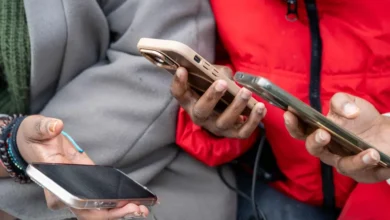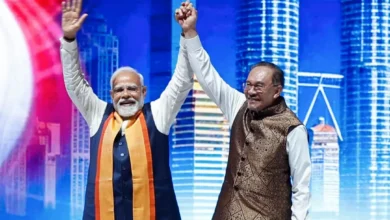Muslim women carve their space in India’s lower house
Since India’s inaugural general election in 1951-52, just 18 Muslim women have served as Lok Sabha MPs, a stark contrast to the approximately 7,500 MPs elected during the same period.

-
Despite comprising 7.1% of India’s 1.46 billion population, Muslim women have remained largely absent from the 543-seat Lower House. In five Lok Sabha terms since 1952, no Muslim woman was elected, and their representation has never exceeded four members in a single term.
-
Missing from the House offers a compelling account of 18 Muslim women Lok Sabha members, highlighting their resilience, dedication, and contributions to Indian politics, showcasing how they overcame societal and cultural barriers while serving constituents selflessly.
S A H Rizvi
Chief Of Bureau, New Delhi
The Times Kuwait
Since India’s first general election in 1951-52, only 18 Muslim women have served as MPs in the Lok Sabha, a striking contrast to the roughly 7,500 MPs elected over the same period. This small group—ranging from royalty to the wife of a tea vendor, a first lady to a Bengali actress—reflects both diversity and underrepresentation, as detailed in Missing from the House: Muslim Women in the Lok Sabha by Rasheed Kidwai and Ambar Kumar Ghosh.
Despite comprising 7.1% of India’s 1.46 billion population, Muslim women have remained largely absent from the 543-seat Lower House. In five Lok Sabha terms since 1952, no Muslim woman was elected, and their representation has never exceeded four members in a single term. Notably, no southern state—Karnataka, Andhra Pradesh, Tamil Nadu, Kerala, or Telangana—has ever elected a Muslim woman MP, despite higher socio-economic indicators.
Early trailblazers
The early trailblazers included Mofida Ahmad from Assam’s Jorhat and Maimoona Sultan from Bhopal, who entered the Lok Sabha in 1957, with Sultan serving two terms. Other prominent figures include Mohsina Kidwai, Mehbooba Mufti, and current MP Iqra Hasan. Mofida Ahmad’s donation of her entire jewelry collection to the National Defence Fund during the 1962 India-China war exemplifies the dedication and public service of these pioneering women.
The book reveals that 13 of these 18 MPs came from dynastic backgrounds, highlighting the role of family ties in their political ascent. The authors question whether their participation was driven more by filial duty than personal ambition, noting that few became long-term MPs or ministers due to systemic barriers rather than a lack of political grit.
Challenging stereotypes of Muslim women as veiled and marginalized, Missing from the House argues that their exclusion is structural, normalized by societal perceptions.
The book offers three key insights:
- Democracy’s Lived Experience: These women’s struggles for visibility enrich India’s democratic narrative beyond mere institutions.
- Unblemished Integrity: Free from corruption or hate speech allegations, they set a high standard for public service.
- A Starting Point: A Lok Sabha seat is not the end but the beginning of a journey toward inclusive representation.
Their faith, far from limiting, acted as a liberating force, enriching public discourse. The term “participation,” from the Latin participātiō (“a sharing in”), captures their democratic contributions. Presented as resilient yet ordinary, these women balanced family and politics at great personal cost. Mofida Ahmad’s wartime sacrifice and Zohraben Akbarbhai Chavda’s journey from nursing to activism underscore their remarkable resolve.
Missing from the House provides a compelling account of the eighteen Muslim women who became Lok Sabha members, highlighting their resilience, dedication, and contributions to Indian politics.
Overcoming societal and cultural barriers
The book showcases their ability to overcome societal and cultural barriers while remaining committed to India’s founding principles and serving their constituents without personal gain. These MPs maintained clean records—free from corruption, criminal charges, or hate speech—and actively participated in parliamentary debates, policy discussions, committee work, and constituency development. Serving as role models, they inspire future generations of Muslim women parliamentarians.
Kidwai and Ghosh’s well-researched work not only celebrates these 18 trailblazers but also exposes structural barriers to representation, making it essential reading for understanding gender, minority, and political dynamics in India.
Follow The Times Kuwait on
X, Instagram and Facebook for the latest news updates







